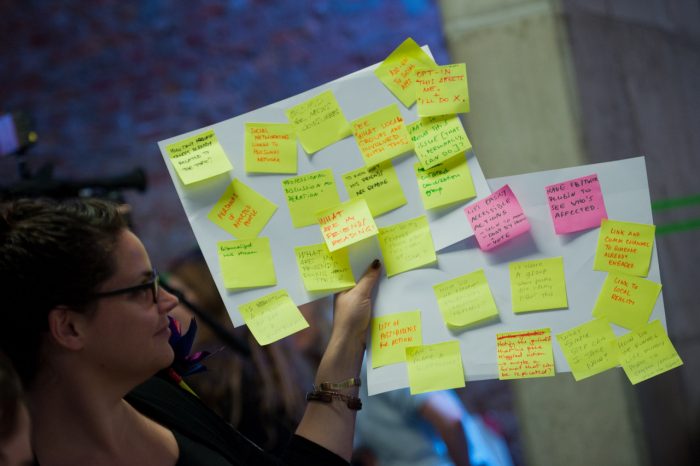
The biggest challenge for news entrepreneurs often isn’t building a news product — it’s developing a sustainable business model. For journalists of color and members of marginalized communities, that challenge is often exacerbated by lack of access to resources, networks, and financial security to be able to experiment, let alone launch a startup.
That’s why Local Independent Online News (LION) Publishers and the Google News Initiative are piloting an eight-week virtual bootcamp on journalism entrepreneurship. Phillip Smith, the founder of the Journalism Entrepreneurship Training Co., will run the bootcamp that he developed and executed previously on his own in 2018. He tested out the ideas for the bootcamp while he was a John S. Knight Fellow at Stanford University.
“The curriculum is laser-focused on helping people understand and try to mitigate the risks ahead of time — by interviewing potential customers, potential sponsors, and advertisers and getting into the weeds of what their business is going to be after they launch,” Smith said. “[Often], people leaving a newsroom just go out there and they start reporting, set up a WordPress site, and six months later look back and think, ‘How the hell am I going to pay myself?’ I saw that pattern happen so often that I thought there’s got to be a better way to ensure that these people succeed.”
The point of the virtual bootcamp isn’t to launch a news startup in eight weeks, but to help journalists think as business owners and make their ideas less risky.
“Journalists are natural skeptics, except when it comes to their own idea about their business plan,” Smith said. “The challenge I ask participants to undertake is to apply that natural skepticism to their own assumptions. Let’s not risk our business on an untested assumption. Let’s test all of those assumptions that people are interested in what you’re going to report on and that they’d be willing to support you in some financial way.”
Anika Anand, the programming director for LION, said the program came together fairly organically. Smith is a member of LION’s Advisory Council and Anand had mentioned to him that she was interested in running some kind of bootcamp like this one through LION. When Smith said he had actually done it before, they decided to join forces.
Around that time, Anand was also working with the Google News Initiative on Project Oasis, an initiative that aims to shed light on how digital news organizations become successful. The Google News Initiative decided to help with the bootcamp as well.Anand and Smith wanted to remove two of the larger barriers that often exist in professional development: cost and location. Because of GNI’s involvement, the bootcamp can accept 24 teams (of one to two people) and is completely free to participants. If a participant chooses to launch their startup after the bootcamp, it’s still theirs and no money goes back to Google or LION.
The seminars are weekly and remote, though participants will be required to go into their communities and conduct interviews with community members about how they can serve their information needs better. Smith said the ability to remain in your community while participating in the bootcamp is vital. Often, workshops require participants to fly to a location in a different city. That makes the discussion more theoretical and academic, Smith said.
For GNI, the bootcamp plays into its mission of contributing to a healthy news ecosystem that includes a range of news outlets and business models, from legacy organizations to startups.
“We need to think through how to contribute to lots of different types of models. Local experiments are one angle,” Ben Monnie, the director of global partnerships for the Google News Initiative, said. “This program, combined with Project Oasis, hopefully will lead to new digital news organizations covering markets and communities that haven’t historically been covered.”
Smith emphasized that the program is “tax-status agnostic”: The focus is on de-risking a business idea and making it bulletproof, rather than on helping startups decide whether they should be nonprofit or for-profit companies.
Anand is particularly looking for journalists of color to participate. It’s no secret that they’re underrepresented in newsrooms (and even less so in leadership and media ownership). She’s also looking for people who don’t come from traditional newsroom or journalism backgrounds, but are interested in informing their communities.
“Independent local digital startups are growing up,” Anand said. “There’s a lot to be learned from their experiences and lessons to pass on to future aspiring entrepreneurs, and I think it’s especially important for us to reach those folks who are in communities that feel they don’t have any existing media that’s covering underrepresented voices in those communities.”
Applications are open today and will be accepted through August 17 from people in the United States and Canada. The bootcamp will run from September 21 to November 9, 2020.